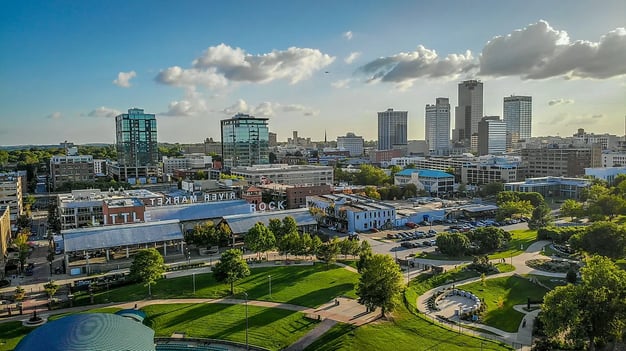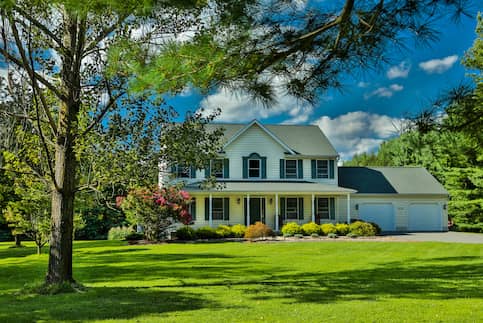Spotlight Series: Little Rock, Arkansas
A Strategic Haven for Real Estate Investors.
At SHARE, our core mission centers around prioritizing our investors' best interests. We recognize the pivotal importance of staying ahead in the dynamic world of real estate investment. Our commitment involves continuous analysis of new markets and vigilant monitoring of emerging trends, ensuring our investors not only keep pace but lead the way. We are excited to announce SHARE's latest expansion into Little Rock, Arkansas, aligning with our dedication to providing unparalleled opportunities in this prosperous and forward-thinking investment landscape.

Affordability and Home Price Appreciation:
Little Rock stands out as an affordable haven for both residents and investors. The median price of a single-family home, at $199,919 (December 2023, Zillow), is notably lower than the national average of $343,000. Reflecting resilience, the Freddie Mac House Price Index shows a 31% increase in the last five years, with a modest 0.3% rise in 2023, presenting an opportune moment for investors.
In an era where housing affordability is a growing concern, Little Rock stands as a beacon of accessibility, inviting both residents and investors into a market that balances quality living with smart and sustainable real estate investment opportunities.
Solid Rental Market:
With 45% of homes occupied by renters, Little Rock presents a lucrative opportunity for real estate investors. The overall median rent in the city stands at $1,057, having risen by 0.7% last month and 2.0% year-over-year. Additionally, the city ranks 13th in the hottest national small-city rent market, with 93.7% of apartments being occupied and an average of eight prospective renters per apartment. Furthermore, the average rent for a single-family home here is approximately $1,315 per month. Although this is lower than the national average rent for a single-family home ($1,718), investors can still benefit from higher-than-average rental yields due to the affordability of housing in Little Rock.
The dominance of single-family homes (62.6%) and the scarcity of apartment complexes (27.6%) offer a chance to strategically meet diverse housing needs. Roughly 79% of homes were built before 1999, and newer-builds after 2000 make up a modest 21% of the market. This presents opportunities for investors to target both older properties for renovations or newer properties for their scarcity, allowing investors to maximize rental income while ensuring value appreciation.
Low Cost of Living:
Little Rock's cost of living, 4% lower than the national average, plays a pivotal role in SHARE's assessment of market attractiveness. This crucial metric significantly impacts the financial dynamics of real estate investment. A lower cost of living enhances the demand for housing, creating a stable and resilient market with sustained rental demand. For investors, this signifies the potential for better rental yields, increased tenant retention, and overall profitability.
Job Market and Economic Stability:
Little Rock boasts a diverse economy, spanning healthcare, aerospace, agriculture, finance, technology, manufacturing, and education. Key employers include Arkansas Children’s Hospital and the University of Arkansas for Medical Sciences. Plus, several well-known companies are either headquartered in the city or have a significant presence, such as Dillard’s, Windstream Communications, Welspun Group, Stephens Inc., the Clinton Foundation, and Winrock International.
The business-friendly environment, supported by tax incentives and a thriving small business community (99.3% of all businesses in Arkansas are small businesses), contributes to economic diversity and long-term stability. This economic resilience ensures sustained employment, real estate demand, and property values, making Little Rock an attractive proposition for investors.
Steady Population Growth:
Ranked as the 81st largest metro in the U.S., Central Arkansas is home to ~750,000 people as of 2020 census data. As the capital and most populous city in Arkansas, Little Rock'’s population has steadily grown at a rate of 1.78% since 2010, positioning this location as a reliable investment market. This moderate growth is advantageous for investors as market imbalances are prevented and stability is ensured. Little Rock proves that population gains need not be massive to be beneficial; a steady increase provides a reliable indicator for predicting market fluctuations.
In summary, Little Rock, Arkansas, emerges as an enticing investment destination, particularly for out-of-state investors. The city's blend of affordability, historical charm, and deliberate population growth creates a compelling narrative for long-term value appreciation. With a diverse and stable job market fostering economic resilience, Little Rock offers a balanced and promising investment environment where the past meets the present in a landscape of economic stability and growth.


